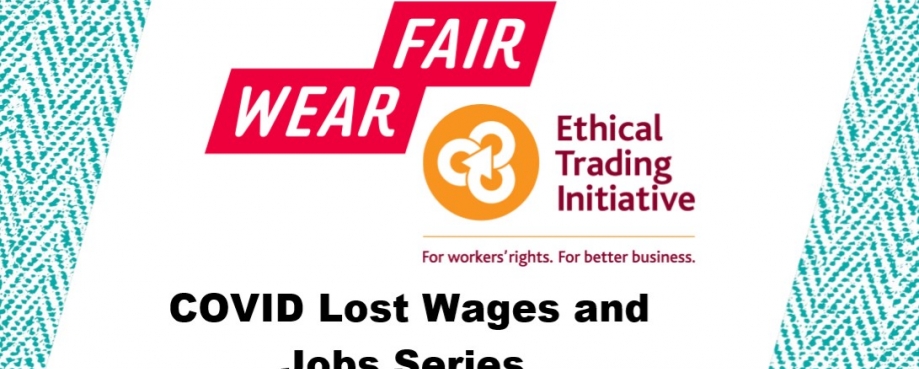
"In discussions with each supplier, for every piece of information a brand seeks, it should also share information. This is fair and one of the best ways to build trust."
ETI and Fair Wear have today published joint guidance for brands on how to conduct their supplier relationships during Covid-19.
The Covid 19: Loss of Jobs and Wages Series is based on a series of 4 webinars which laid out guidance to member brands on upholding their responsibilities to workers in supply chains who were either laid off or facing reduced wages due to the Pandemic, and consolidates the learning and slides from each.
ETI/Fair Wear have published a handbook, consolidating learning from the webinars and looking at 4 key areas:
- Staying responsible and honouring obligations
- Addressing your supply chain and identifying lost wages and jobs
- Taking action to address lost wages and jobs
- Forecasting, costing and responsible exit strategies
It covers situations such as where a brand is unable to avoid cancelling an order, how to collect wage/job loss data from suppliers, and ensuring workers' voices are listened to.
There's also a quick reference tool with advice on what to do in specific situations, and a framework for conducting brand-supplier conversations, with ideas on how to have open, transparent discussions, and show commitment to collaborating to find solutions.
The materials are interactive and live links enable brands to cross-reference easily and to quickly access information on different aspects of the supplier relationship, depending on the stage they're at in the negotiation process.
Brands can also access FairWear's Labour Minute Costings Calculators, which have been adapted to take into account the impact of Covid-19, and are broken down by country and region. and which allow brands and factories to ringfence labour costs based on a transparent methodology for the costing and pricing of goods.
